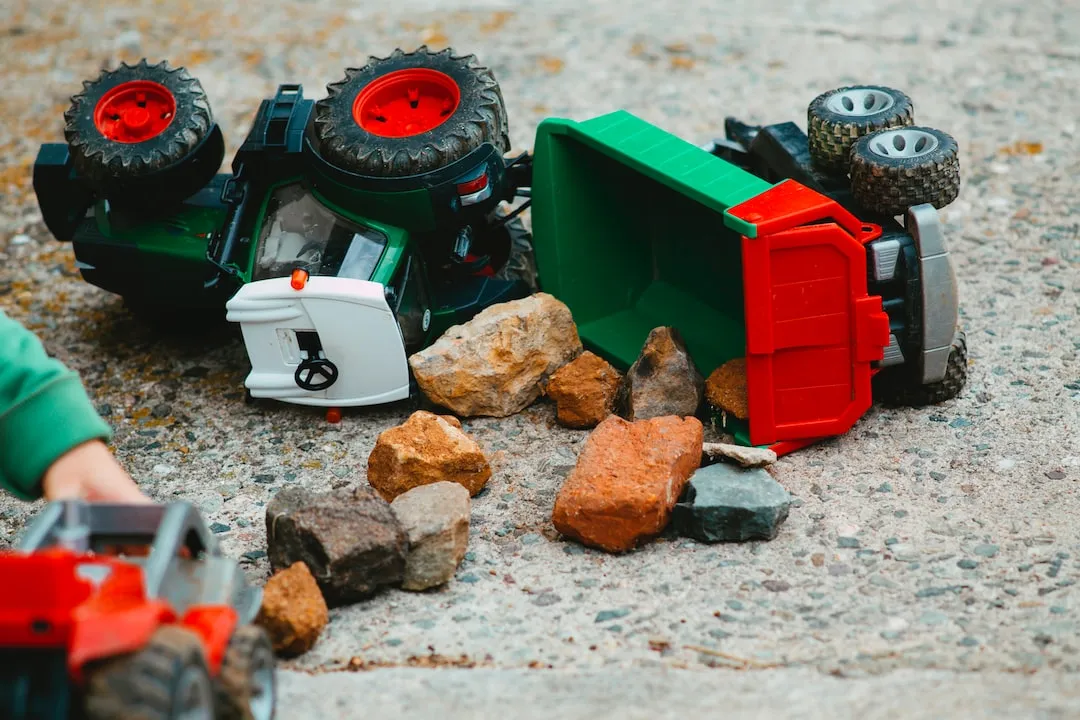Playful Learning: The Power of Play in Education
To offer you a variety of ways to incorporate play-based learning into your child’s education, we’ve gathered seven insightful responses from professionals like Project Leads and Directors. From engaging kids with puppet play to fostering teamwork and language skills through Lego building, discover the playful learning activities that have significantly contributed to children’s growth.
- Engaging Kids With Puppet Play
- Enhancing Skills Through Storytelling and Props
- Learning Through Everyday Activities
- Exploring Science for Hands-On Learning
- Pretending to Grocery Shop for Practical Skills
- Crafting Scavenger Hunts for Problem-Solving Skills
- Lego Building With Teamwork and Language Skills
Engaging Kids With Puppet Play
Use puppets! Kids naturally enjoy make-believe games, and using puppets, dolls, or toy figures that can “speak” is an instant hit. Often, kids will listen to a toy character even when they won’t listen to an adult! In my class, these toy characters often approach the kids with a problem to figure out.
Then, the puppet will ask the kids to show them a skill. This helps me see what kids have learned and gives extra practice for those who need it. Sometimes, I also share a new tune, play, or fun task. And of course, the puppet can also remind kids about good behavior and politeness.
This play-based learning using puppets is especially useful in educating younger kids who have short attention spans. It’s helpful in keeping them engaged and participative in the learning process, while also allowing them to retain important lessons.
 Chris Burgess
Chris Burgess
Project Lead, EuHu by Findel
Enhancing Skills Through Storytelling and Props
Incorporating play-based learning into my child’s education has been invaluable. One playful learning activity we enjoy is storytelling with props. We gather various objects and toys and take turns creating stories using them.
This fosters creativity, language development, and critical thinking as our child explores different narratives, characters, and scenarios. It’s a fun and interactive way to enhance their communication skills while allowing them to use their imagination freely.
 Aviad Faruz
Aviad Faruz
CEO, Know Mastery
Learning Through Everyday Activities
Incorporating play-based learning into my child’s education is all about making learning fun and engaging. I try to use everyday activities and turn them into learning opportunities. For instance, we use cooking as a way to learn about measurements and fractions.
During our baking sessions, I ask my child to measure ingredients and explain how many halves make a whole, or how many quarters make a half. It’s a playful activity that also teaches them practical math skills.
Another activity we enjoy is nature walks. These walks aren’t just for exercise; they’re also a chance for my child to explore and learn about the natural world. We identify different types of plants, discuss the weather and seasons, and even observe animals and their behaviors. It’s a hands-on experience that fosters curiosity and a love for science.
Incorporating play into learning isn’t about formal lessons; it’s about using play and exploration as tools for learning.
 Lukasz Zelezny
Lukasz Zelezny
SEO Consultant, SEO Consultant London
Exploring Science for Hands-On Learning
Incorporating play-based learning into a child’s education can be an incredibly rewarding experience. One particularly effective and enjoyable activity is what can be called “Science Exploration Time.”
During these sessions, a child can be guided through a series of simple yet fascinating science experiments, such as orchestrating a volcanic eruption using the classic combination of baking soda and vinegar or embarking on explorations into the principles of buoyancy with various objects in a body of water.
This hands-on approach not only sparks a child’s curiosity and imagination but also empowers them to think critically and tackle problems creatively. It’s a playful method to nurture their innate love for learning, and it can significantly contribute to their overall growth and development.
 Nick Edwards
Nick Edwards
Managing Director, Snowfinders
Pretending to Grocery Shop for Practical Skills
Incorporating play-based learning into a child’s education is essential for their holistic development. One playful learning activity that has greatly contributed to my child’s growth is creating a pretend grocery store.
We set up a small shop at home with empty food boxes, play money, and a cash register. Through this activity, my child learns about counting, money management, and social interaction.
They develop problem-solving skills by deciding what to buy and how to pay for it. This hands-on experience fosters creativity, imagination, and critical thinking, making learning enjoyable and effective.
 Lee Odierno
Lee Odierno
Personal Injury Lawyer, The Odierno Law Firm, P.C.
Crafting Scavenger Hunts for Problem-Solving Skills
From my personal journey as a parent, I’ve found that integrating play-based learning into my child’s education is both fulfilling and highly effective. One memorable learning activity that I’ve often employed is crafting scavenger hunts within our home.
I hide an assortment of items throughout our living space and provide my child with clues to decipher, which not only nurtures their problem-solving skills but also ignites their creativity. In my experience, this interactive game not only infuses education with fun but also serves as a catalyst for curiosity and critical thinking.
It’s a fantastic approach that allows my child to explore and acquire knowledge in an engaging, hands-on manner, ultimately contributing to their comprehensive growth and development.
 Nilesh Rakholia
Nilesh Rakholia
Director, Abelini
Lego Building With Teamwork and Language Skills
Cooperative, play-based learning has been a cornerstone in my own child’s development. We often spend weekend afternoons building with Lego blocks, and it’s incredible to see how this form of play has evolved over time. Initially, my child would build independently, focused on individual projects.
But as we invited friends over for playdates, the dynamic naturally shifted towards cooperative play. Through this, my child has shown significant improvement in language skills, often directing peers and articulating ideas clearly.
I’ve also noticed growth in the ability to work as part of a team—knowing when to lead and when to step back and allow others to take the reins.
 Danilo Miranda
Danilo Miranda
Managing Director, Presenteverso
Submit Your Answer
Would you like to submit an alternate answer to the question, “How do you incorporate play-based learning into your child’s education? Share a playful learning activity that has contributed to their growth.”
